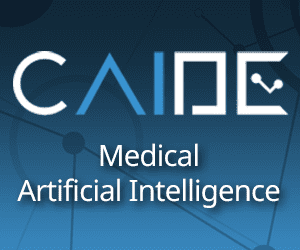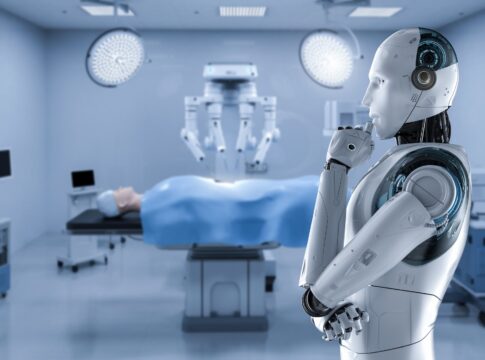Artificial Intelligence (AI) has emerged as a transformative technology in the field of medicine, revolutionizing diagnosis and treatment processes. By leveraging vast amounts of medical data, advanced algorithms, and machine learning techniques, AI has the potential to enhance healthcare delivery, improve patient outcomes, and streamline clinical workflows. Here’s how AI is making a significant impact in medicine:
- Medical Imaging and Diagnostics: AI is revolutionizing medical imaging interpretation by enabling more accurate and efficient diagnoses. AI algorithms can analyze medical images, such as X-rays, MRIs, and CT scans, to detect abnormalities, identify patterns, and assist radiologists in making diagnoses. This technology has shown promising results in detecting various conditions, including cancers, cardiovascular diseases, and neurological disorders.
- Clinical Decision Support Systems: AI-powered clinical decision support systems assist healthcare professionals in making evidence-based treatment decisions. By analyzing patient data, medical literature, and clinical guidelines, these systems can provide recommendations for diagnosis, treatment options, and personalized care plans. AI algorithms continuously learn and adapt from new data, ensuring that recommendations are up-to-date and reflective of the latest medical knowledge.
- Predictive Analytics and Early Detection: AI algorithms can analyze patient data to identify patterns and predict the likelihood of future health events. This enables early detection and intervention for diseases, improving patient outcomes. For example, AI can identify individuals at high risk of developing conditions like diabetes or sepsis, allowing healthcare providers to initiate preventive measures or interventions proactively.
- Precision Medicine and Personalized Treatment: AI enables personalized medicine by analyzing large datasets, including genomics, clinical records, and lifestyle factors, to identify individualized treatment approaches. AI algorithms can help match patients with specific treatments or medications based on their unique characteristics, maximizing treatment effectiveness and minimizing adverse effects.
- Virtual Assistants and Chatbots: AI-powered virtual assistants and chatbots can interact with patients, answer their questions, and provide basic healthcare guidance. These AI systems can collect patient history, triage symptoms, and offer recommendations for self-care or appropriate healthcare services. Virtual assistants also help alleviate the burden on healthcare providers by handling routine inquiries, allowing them to focus on more complex cases.
- Remote Monitoring and Telemedicine: AI enables remote monitoring of patients, facilitating timely interventions and reducing the need for frequent in-person visits. AI algorithms can analyze patient data collected from wearable devices, such as smartwatches or sensors, to monitor vital signs, detect anomalies, and provide alerts to healthcare providers. This technology is particularly valuable in managing chronic conditions and providing care in remote or underserved areas.
- Drug Discovery and Development: AI is accelerating the drug discovery and development process by analyzing vast amounts of biomedical data. AI algorithms can identify potential drug targets, predict drug efficacy, and optimize drug designs, reducing the time and cost associated with bringing new treatments to market. This has the potential to accelerate the availability of novel therapies for various diseases.
- Healthcare Operations and Resource Management: AI algorithms can optimize healthcare operations by analyzing data on patient flow, resource utilization, and staff scheduling. By predicting patient demand, optimizing bed allocation, and streamlining workflows, AI can help healthcare facilities operate more efficiently, reduce waiting times, and allocate resources effectively.
While AI brings significant advancements to the field of medicine, it is important to ensure ethical considerations, data privacy, and regulatory compliance in its implementation. Collaborations between healthcare professionals, data scientists, and AI experts are crucial to harness the full potential of AI in medicine and ensure its responsible and effective integration into clinical practice.








